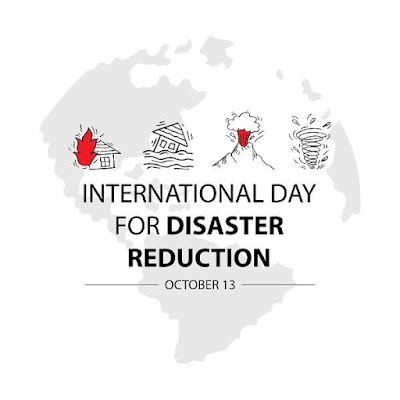Every 13 October, the world observes the International Day for Disaster Risk Reduction (IDDRR) to promote a global culture of risk awareness and disaster reduction.
The day acknowledges the progress made toward reducing disaster risk and losses in lives, livelihoods, and health and encourages governments, communities, and individuals to build resilience.
🌟 Why This Day Matters
✅ Prepares Communities: Raises awareness on disaster preparedness and risk reduction.
✅ Saves Lives: Promotes policies and practices that minimize disaster impacts.
✅ Supports SDGs: Aligns with SDG 11 (Sustainable Cities and Communities) and SDG 13 (Climate Action).
✅ Builds Resilience: Encourages investment in disaster-resilient infrastructure.
📜 Background
✨ Established by the UN General Assembly in 1989.
✨ Supports the Sendai Framework for Disaster Risk Reduction (2015-2030).
✨ Each year has a theme (e.g., “Substantially reduce disaster damage to critical infrastructure and disruption of basic services.”).
📊 Key Facts
✨ Climate-related disasters have increased by 83% over the past 20 years.
✨ Disasters impact over 200 million people annually, pushing many into poverty.
✨ Every $1 invested in disaster risk reduction saves $7 in disaster losses.
🎉 How to Observe
✅ Learn Disaster Safety: Know evacuation routes and community emergency plans.
✅ Raise Awareness: Use #IDDRR to share tips on preparedness.
✅ Support Resilience Projects: Volunteer in community disaster drills and education.
✅ Create Art: Illustrate resilience and the human spirit during disasters.
💡 Why It Matters
✅ Builds safer, disaster-resilient communities.
✅ Protects livelihoods, infrastructure, and ecosystems.
✅ Encourages collaboration among governments, NGOs, and communities.
“Disasters can strike at any time, but preparedness can save lives.” – UNDRR
🎨 Artistic & Educational Opportunities
For artists, educators, and storytellers:
🎨 Create visuals of disaster preparedness tips and community resilience.
📸 Share reels on local disaster safety practices or climate adaptation.
🖋️ Write reflections on resilience in your community during floods, storms, or other disasters.
👩🏫 Host art-based disaster preparedness workshops for children.
📌 Final Thought
On 13 October, International Day for Disaster Risk Reduction, let us commit to building safer, prepared communities that can withstand and recover quickly from disasters.
🏠 For more art, travel, and cultural stories, visit our CRA ARTS Main Page.

Comments
Post a Comment